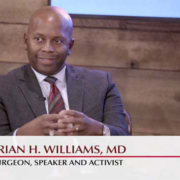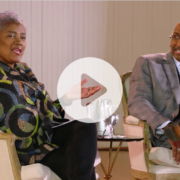Want to Help Heal Racial Inequity? Start With These 5 Questions
Our series of monthly actions invite Common Grounders to bring light, not heat, to the work of leading progress on America’s most pressing issues. This month: reach out to a local leader to ask how their organization is addressing racial justice and equity – and how you can help.

July 2020 Action: Talk to a Local Leader About Race & Equity
As protests for racial justice and equity continue across the nation, how is our own community leading change? To move beyond the status quo, citizens need to be at the forefront of calling for progress. And to become an effective force for transformation in our own neighborhoods, the first step is listening to understand.
This month, reach out to ask one local leader how their organization is taking action to address racism in this moment of crisis and opportunity.
5 questions to spur action & gain insight
Asking local leaders what they are doing to address racism demonstrates a desire for action in the the community, while giving you valuable insights on how to serve as a more effective advocate. Here are five questions to help start the conversation:
- What is your organization’s stance on racial justice and equity, and the current protests?
- How has this been communicated to the public and discussed with your team?
- How is your organization taking steps to support people of color in our community during this difficult time?
- How are people of color represented in leadership roles at your organization?
- What action can I take to help your organization move this issue forward?
Making connections to influence change
Race is entwined through all aspects of our society. And leaders across all sectors can play a role in influencing change – from educating and legislating, to innovating and networking.
Consider reaching out to a leader in a sector where you can offer valuable insights, or where you feel passionate about the opportunity to make progress. Leaders who are positioned to influence change can include:
- Chief of Police
- Mayor or Town Supervisor
- State representative
- School or university administrator
- Local business leader
- Pastor or faith leader
Reaching out to board chairs and board members can help ensure your communication is considered at an organizational level.
And, don’t forget the critical piece of asking for the opportunity to connect and talk personally about your inquiry. One-on-one conversation is the best path to find common ground and opportunities to take action. Be prepared to learn about other perspectives and experiences, and to ask questions to clarify rather than assuming you know the other person’s intentions.
No matter who you are or where you live, your voice and participation is vital to help heal racial tension and inequities. Let’s start by reaching out – and listening to understand – in our own communities.












